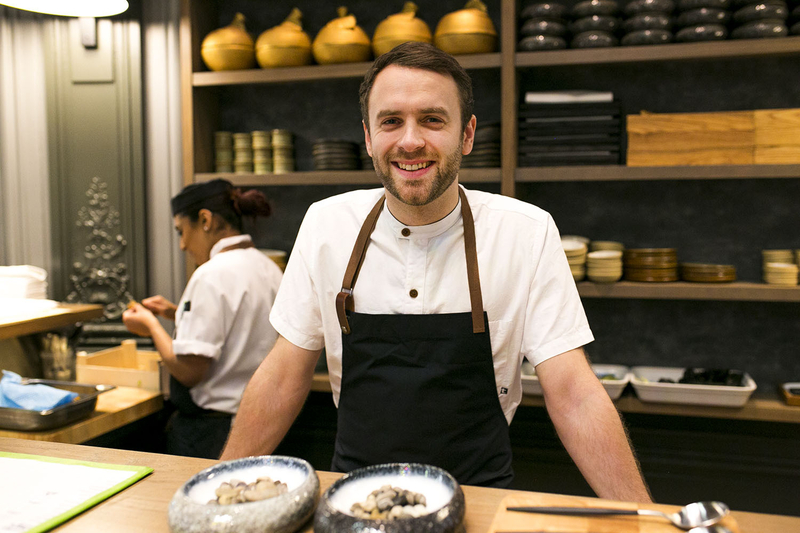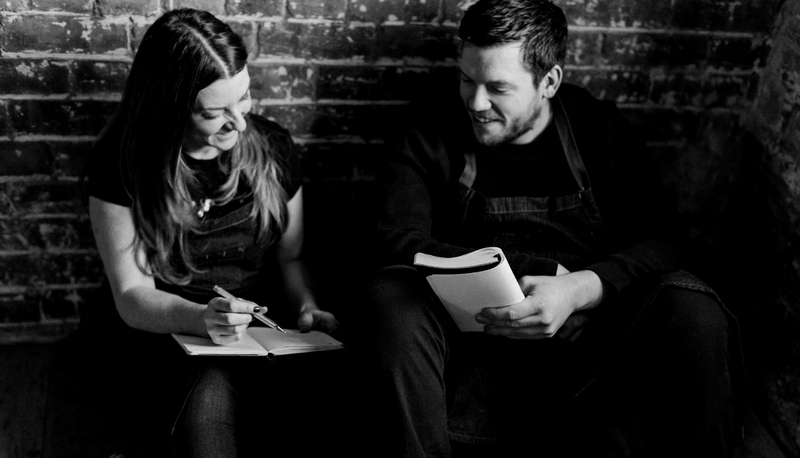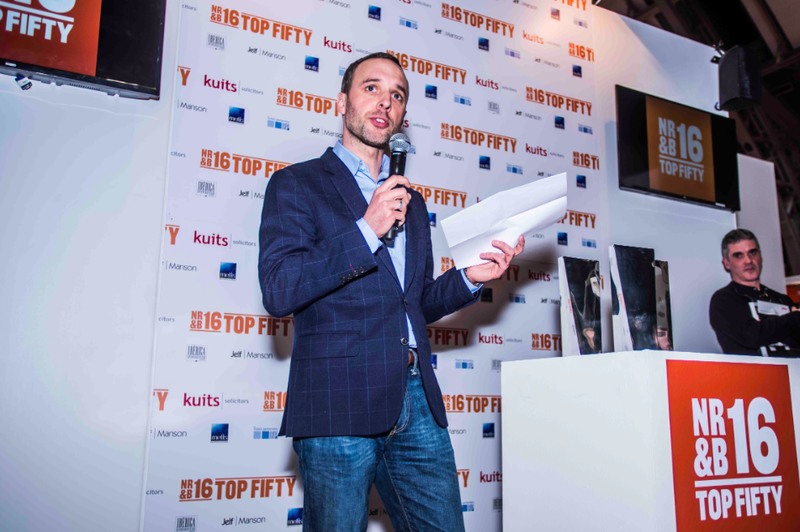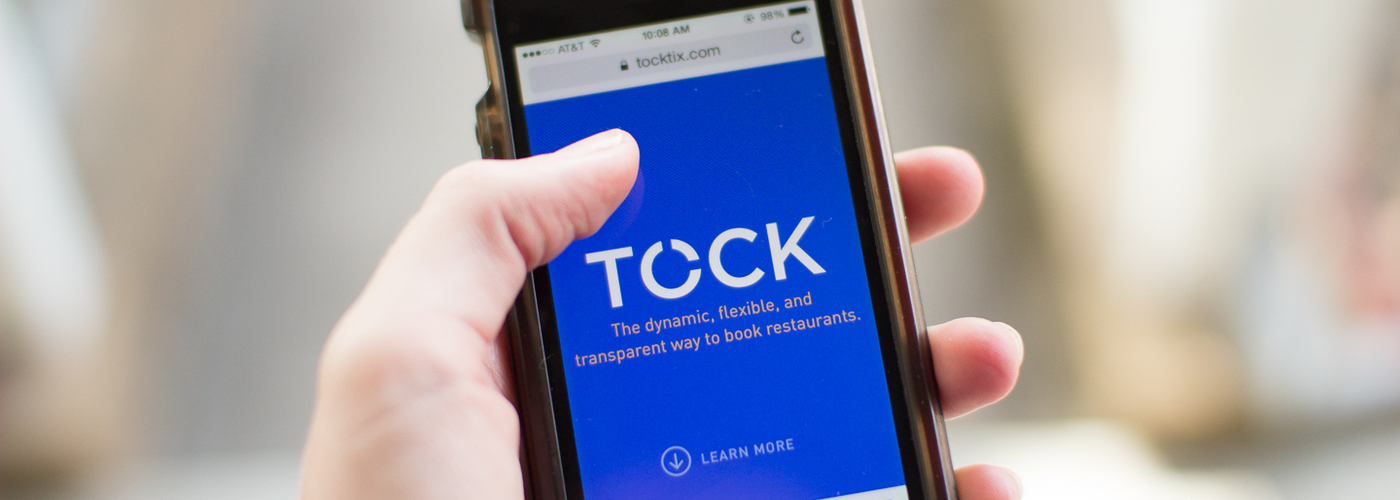Deanna Thomas speaks to the growing number of restaurants asking for payment up front
How would you feel if you could reserve tickets to a concert and not have to shell out until afterwards? How about booking seats at the theatre, a Premier League football match, or a festival? That way, if you don’t have to commit by actually laying out money, you can change your mind. Who knows, something might come up. Better to keep your options open, right?
Better for you as a customer perhaps, but this kind of non-committal attitude is having a devastating effect on the restaurant industry - especially smaller, independently-owned restaurants with a limited number of covers.
Twenty per cent of UK restaurants are at risk of going under every year and many have had to start implementing a few rules to protect themselves. Regular no-shows are a particular problem.
“We have had to start taking measures to protect our revenue stream,” says chef Adam Reid of The French at the Midland Hotel. “We now take booking security and charge a cancellation fee at weekends where we have more demand.
“Before, we used to have ten or fifteen no shows on a Saturday night. For a 45 cover restaurant, that’s one third of your business. You can’t resell those, so how are restaurants supposed to recover their losses? They’ve already organised the staff and done all the prep. Before you know it, they’re on the verge of going out of business.”

So it's understandable that many smaller scale operations are looking to protect their revenues in some way. Some have begun to impose cancellation penalties, others now require a non-refundable deposit, and a few are insisting on taking full payment up front.
One forward thinking reservation management platform which allows venues to choose how they secure their bookings is Tock, an advanced ticketing system founded by Nick Kokonas, co-owner of the Chicago-based Alinea Group, which includes internationally renowned restaurants Alinea, Next and The Aviary.
“As I became more involved with running Alinea, issues of no-shows, yield management and efficiency became an obsession with me,” CEO Nick told us. “Why did we have a 50 person waiting-list on a given night, but still have two tables of four go totally empty? Why is it that every other form of entertainment sells tickets? And what can we do to provide better hospitality by predicting our patrons' needs?”
"20 or 30% of no-shows is the difference between making money and going under" - Elizabeth Cottam, HOME, Leeds
Since launching in the UK just over two years ago, Tock has become the system of choice for many top-end restaurants, including London's Duck & Waffle and The Clove Club.
The booking platform promises to reduce no-show rates from ‘the insane’ to less than 1%. It has also been adopted by Heston Blumenthal's three Michelin starred restaurant The Fat Duck, where diners are required to stump up the full £275 per person before they’ve even made the journey. A few restaurants also insist on including the service charge up front too.

This idea of mandatory pre-payment, or at least a reasonable deposit, is now working its way up north. Top Leeds restaurants have positively embraced the idea of encouraging diners to financially commit to their booking; Olive & Rye, Tickton Grange Hotel and Hide Restaurant, La Dolce Vita at East 59th and The Man Behind the Curtain all now take bookings via Tock.
Man Behind The Curtain's chef-patron Michael O’Hare has also implemented a non-refundable deposit of £30 per person in his new Manchester restaurant Rabbit in the Moon, 'due to high demand'.
Implementing this system was a no-brainer for Masterchef semi-finalist Elizabeth Cottam, when she opened HOME in Leeds three months ago.
“I was lucky enough to go to Eleven Madison Park in New York,” she told us.” From a customer’s perspective, the booking system guided me through the experience in a way that felt special by starting a friendly dialogue. The fact that we had to pay 100% up front – including service charge – didn't even factor in our decision. We'd have to pay sooner or later.
“20 or 30% of no-shows is the difference between making money and going under," she continues. "Even yesterday a booking of six cancelled. We took a deposit, but missed out on a massive chunk of revenue because those people didn’t come. We'd still bought and prepared the food.
"People are booking months in advance to come here; we’re not the type of business that can rely on walk-ins."
Money isn’t the only factor for implementing the Tock system. Samuel Buckley, chef patron of Where The Light Gets In in Stockport, updated their booking policy about a month ago to require full payment of £75 per person for their blind tasting menu, despite never revealing dishes until they are served.
“It’s not a profits thing in any shape or form,” says Buckley. “When we first opened, I wanted to make sure that everyone was personally greeted by telephone, marking the beginning of the experience, because that’s what we do. It’s not just about a meal here; it’s theatrical, it’s educational and hopefully inspirational. But it would require three full time members of staff just to man the phones.
(It’s worth noting that in the few days following a positive Guardian review, WTLGI received over a thousand booking enquiries.)
"It’s important that consumers make the connection that this is also somebody’s livelihood.”
“This put our general manager on the phone most of the day, explaining our booking policy to people and being sympathetic about a traffic jam on the M56. As we are in such high demand, it was unfair on people who couldn’t get a table," he continues.
“We’re only a 26-seat place and we cook everything to order - some dishes start two or three days in advance. We have zero waste policy, aiming to be socially and ethically responsible and sustainable as a restaurant.
"It’s great that dining out has become the norm for most people, but unfortunately we live in a culture of frivolity. It’s important that consumers make the connection that this is also somebody’s livelihood.”

Speaking to those in the industry, there seems a certain inevitability about systems such as Tock - which now operates in eighteen countries and 65 cities, including over twenty highly regarded venues in the UK. However, it remains to be seen what the wider general public will make of having to pay for their dinner up front.
One anonymous industry insider, whose job it is to visit and critique restaurants for various publications and guides, isn’t sure this is the right way to go.
“I understand restaurants need to protect themselves against the frankly appalling behaviour of some customers,” she says. “I'm happy to pay a deposit, but Tock is my least favourite way of doing it - it's cold, impersonal and allows restaurants to go mad with the kinds of rules and regulations that don't exactly stimulate the appetite.
“Being told that my 'ticket' entitles me to X, Y and Z doesn't scream hospitality and in my experience changing times, tables and menus - which is inevitable sometimes - is awkward. If I'm coughing up in advance for a fancy dinner, I'd rather pay the deposit over the phone, with a real live member of staff and a bit of old fashioned chat. I feel, rightly or wrongly, that the places which do it this way value my custom more.”
Thom Hetherington, CEO of the annual Northern Restaurant and Bar Show, disagrees. “As a diner I think Tock is absolutely the right way to go. I genuinely think it's a great thing, the sooner it is an industry standard the better.
"I appreciate diners aren’t use to Tock and of course they’ll grumble, but in ten years when it’s the norm it will just be accepted and we’ll find it incredible that the world ever worked any other way.”



